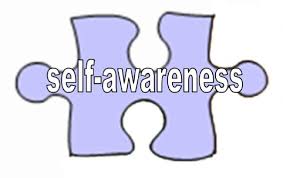Word Of the Week #528: Optimism
September 18, 2014 by Susan Clarke · Comments Off on Word Of the Week #528: Optimism
Optimism – the best possible or conceivable condition.
Do you generally feel optimistic about your life? Do you see failure as “just a setback” or a road block that you have to get around? Or does failure make you feel helpless?
This is the last trait on self-motivation from Daniel Goleman’s book on Emotional Intelligence. He says, “Consider the role of positive motivation – the marshalling of feelings of enthusiasm, zeal, and confidence – in achievement. Studies of Olympic athletes, world-class musicians, and chess grand masters find their unifying trait is the ability to motivate themselves to pursue relentless training routines.
Optimism, like hope, means having a strong expectation that, in general, things will turn out all right in life, despite setbacks and frustrations. From  the stand point of emotional intelligence, optimism is an attitude that buffers people against falling into apathy, hopelessness, or depression in the face of tough going. And as with hope, its near cousin, optimism pays dividends in life (providing, of course, it is a realistic optimism: a too-naïve optimism can be disastrous.)
the stand point of emotional intelligence, optimism is an attitude that buffers people against falling into apathy, hopelessness, or depression in the face of tough going. And as with hope, its near cousin, optimism pays dividends in life (providing, of course, it is a realistic optimism: a too-naïve optimism can be disastrous.)
Dr. Martin Seligman, the author of “Learned Optimism,” says “Success comes down to a combination of reasonable talent with the ability to keep going in the face of defeat.”
For his research Dr. Seligman chose Met Life insurance salesmen since they must constantly rebound from getting the door slammed in their face. He discovered that in the first two years on the job, salesmen who scored high for optimism sold 37% more than their pessimistic brethren.
Then he tried another experiment: Applicants who were optimists but who failed to meet Met Life’s other standard test criteria were hired anyway. This group outsold its pessimistic counterparts by 21% in the first year and by 57% the next.
If you have experienced my Fun-damentals of Emotion Intelligence program, then you know it’s your IQ that gets you hired and your EQ that gets you promoted. Your ability to motivate yourself and stay motivated is one of the key elements of emotional intelligence. Optimism and hope fall under self-motivation!
This week focus on being more optimistic. Look at everything as an opportunity, even though it may seem negative at the time. What would you have to do to have the best possible or conceivable condition? How would it feel to know that a setback is just that and not permanent?
I LOVE feedback! Join my Facebook community on my FUN-damentals Fan Page.
Word Of the Week #526: Zeal
September 4, 2014 by Susan Clarke · Comments Off on Word Of the Week #526: Zeal
Zeal –great energy or enthusiasm in pursuit of a cause or an objective.
Is there something that you want to excel in or achieve? What is your personal inspiration that drives you? Are you able to stay motivated in the face of a setback?
This week I want to continue from WOW #519 on self-motivation. In Daniel Goleman’s book on Emotional Intelligence he says, “Consider the role of positive motivation – the marshalling of feelings of enthusiasm, zeal, and confidence – in achievement. Studies of Olympic athletes, world-class musicians, and chess grand masters find their unifying trait is the ability to motivate themselves to pursue relentless training routines.
What seems to set apart those at the very top of competitive pursuits from others of roughly equal ability is the degree to which, beginning early in life, they can pursue an arduous practice routine for years and years. And that doggedness depends on emotional traits – enthusiasm and persistence in the face of setbacks – above all else.”
life, they can pursue an arduous practice routine for years and years. And that doggedness depends on emotional traits – enthusiasm and persistence in the face of setbacks – above all else.”
You’ve heard the saying, “Practice Makes Perfect?” Well it turns out that the earlier they start the better. The top violin students at the best music academy in Berlin, all in their twenties, had put in ten thousand hours’ lifetime practice, while the second-tier students averaged around seventy-five hundred hours.
And this quote comes from long time subscriber, Don. “Perfect Practice Makes Perfect!” Many years ago, I had a meeting with a Disney Executive, when I lived in Orlando and we were talking about motivation, and the passion for excellence and so forth. In our conversation I told him that I believe practice makes perfect. He said; ‘That isn’t correct.’ I was perplexed with his reply, because this is what I had always believed, but he shed a new paradigm on my belief; he said that ‘PERFECT PRACTICE MAKES PERFECT!’ If you practice and your level of practice isn’t the best or perfect or at the highest level, then you will never achieve the level of excellence of the greatest or highest level. From that day forward, I changed my belief and that it is only when we practice at the highest level, can we achieve at the highest level.”
Now don’t let this discourage you. The point is that enthusiasm is a key component to being able to achieve what you want. You need to be able to stay motivated in the face of defeat. Your emotions get in the way of – or enhance – your ability to think and plan, to pursue training for a distant goal, and to solve problems.
This week focus on your personal and/or professional plans and/or goals. What level of enthusiasm do you have for them? In what areas of your life do you feel zeal? Are you willing to practice at the highest level?
I LOVE feedback! Join my Facebook community on my FUN-damentals Fan Page.
WOW Word-Of-the-Week #519: Self-Motivation
July 16, 2014 by Susan Clarke · Comments Off on WOW Word-Of-the-Week #519: Self-Motivation
Self-Motivation – personal inspiration and drive.
What is your personal inspiration that drives you? How do you handle set backs or defeats? Do you lose your enthusiasm? Or does that motivate you to be more persistent in achieving your goal?
This is the follow up to last week’s WOW on self-management. In Daniel Goleman’s book on Emotional Intelligence he says, “Consider the role of positive motivation – the marshalling of feelings of enthusiasm, zeal, and confidence – in achievement. Studies of Olympic athletes, world-class musicians, and chess grand masters find their unifying trait is the ability to motivate themselves to pursue relentless training routines.
What seems to set apart those at the very top of competitive pursuits from others of roughly equal ability is the degree to which, beginning early in life, they can pursue an arduous practice routine for years and years. And that doggedness depends on emotional traits – enthusiasm and persistence in the face of setbacks – above all else.”
- Impulse Control. There is perhaps no psychological skill more fundamentals than resisting impulse. It is the root of all emotional self-control, since all emotions, by their very nature, lead to one or another impulse to act. People who are able to resist temptation and delay gratification are more socially competent: personally effective, self-assertive, and better able to cope with the frustrations of life. They embrace challenges and pursue them instead of giving up even in the face of difficulties. They are self-reliant and confident, trustworthy and dependable, and they take initiative and plunge into projects.
- Foul Mood, Fouled Thinking. If we are preoccupied by worries that we are going to fail at something, we have that much less attention to expend on figuring out how we will succeed at it. Our worries become self-fulfilling prophecies, propelling us toward the very disaster they predict.
Good moods, while they last, enhance the ability to think flexibly and with more complexity, thus making it easier to find solutions to problems, whether intellectual or interpersonal. This suggests that one way to help someone think through a problem is to tell them a joke. Laughing, like elation, seems to help people think more broadly and associate more freely.
And who doesn’t like to laugh?
This week’s focus is on self-motivation. How do you keep yourself on track to reach your goals? Are you able to resist temptation? Are you preoccupied with worries? Have they become your self-fulfilling prophecies?
I LOVE feedback! Join my Facebook community on my FUN-damentals Fan Page.
WOW Word-Of-the-Week #518: Self-Management
July 10, 2014 by Susan Clarke · Comments Off on WOW Word-Of-the-Week #518: Self-Management
Self-Management – being able to manage our emotions.
Do you feel a need to control your anger? How often do you feel sad or “blue”? Do you remember the last time you worried about something? Do you remember how long you were affected by it?
This is the follow up to last week’s WOW on self-awareness. In Daniel Goleman’s book on Emotional Intelligence he says, “Downs as well as ups spice up life, but need to be in balance.” So how do you bounce back and stay in balance?
- Cooling Down. Distraction is a highly powerful mood-altering device for a simple reason: It’s hard to stay angry when we’r
 e having a pleasant time. The trick, of course, is to get anger to cool to the point where someone can have a pleasant time in the first place.
e having a pleasant time. The trick, of course, is to get anger to cool to the point where someone can have a pleasant time in the first place.
- Soothing Anxiety. Worry is the heart of all anxiety. It is, in a sense, a rehearsal of what might go wrong and how to deal with it; the task of worrying is to come up with positive solutions for life’s perils by anticipating dangers before they arise. The difficulty is with chronic, repetitive worries, the kind that recycle on and on and never get any nearer a positive solution. A close analysis of chronic worry suggests that it has all the attributes of a low-grade emotional hijacking! The first step is self-awareness, catching the worrisome episodes as near their beginning as possible and learning to identify situations that trigger worry.
- Managing Melancholy: The single mood people generally put most effort into shaking is sadness or trying to escape the blues. Melancholy, like every other mood, has its benefits. Both aerobic exercise and relaxation have been found to make people feel better. Cheering oneself up through treats and sensual pleasures is a fairly popular antidote to the blues. Common ways people soothed themselves when depressed ranged from taking hot baths or eating favorite foods, to listening to music or having sex. Buying oneself a gift or treat to get out of a bad mood was particularly popular among women, as was shopping in general, even if only window-shopping.
This week’s focus is on self-management. How often do you feel angry? Do you worry about the same things over and over? How often do you “treat” yourself to something special? How does that make you feel?
I LOVE feedback! Join my Facebook community on my FUN-damentals Fan Page.
WOW Word-Of-the-Week #517: Self-Awareness
July 2, 2014 by Susan Clarke · Comments Off on WOW Word-Of-the-Week #517: Self-Awareness
Self-Awareness – being aware of both our mood and our thoughts about that mood.
How often do you find yourself in a bad mood? How long does it take you to change your mood? Do you ever feel overwhelmed and emotionally out of control? Do you tend to be accepting of your moods and therefore don’t try to change them?
Last week’s WOW was on Emotional Intelligence and I got a lot of positive feedback so I am going to share the key factors of EI – aka EQ – in the next several WOW’s. The simplest definition for EI is – an awareness of one’s own emotions and moods and those of others.
 In Daniel Goleman’s book he quotes John Mayer, a University of New Hampshire psychologist who says, “People tend to fall into distinctive styles for attending to and dealing with their emotions:
In Daniel Goleman’s book he quotes John Mayer, a University of New Hampshire psychologist who says, “People tend to fall into distinctive styles for attending to and dealing with their emotions:
- Self-aware. Aware of their moods as they are having them, these people understandably have some sophistication about their emotional lives. Their clarity about emotions may undergird other personality traits: they are autonomous and sure of their own boundaries, are in good psychological health, and tend to have a positive outlook on life. When they get into a bad mood, they don’t ruminate and obsess about it, and are able to get out of it sooner. In short, their mindfulness helps them manage their emotions.
- Engulfed. These are people who often feel swamped by their emotions and helpless to escape them, as though their moods have taken charge. They are mercurial and not very aware of their feelings, so that they are lost in them rather than having some perspective. As a result, they do little to try to escape bad moods, feeling they have no control over their emotional life. They often feel overwhelmed and emotionally out of control.
- Accepting. While these people are often clear about what they are feeling, they also tend to be accepting of their moods, and so don’t try to change them. There seem to be two branches of the accepting type: those who are usually in good moods and so have little motivation to change them and people who, despite their clarity about their moods, are susceptible to bad ones but accept them with a laissez-faire attitude, doing nothing to change them despite their distress – a pattern found among, say, depressed people who are resigned to their despair.
On thing that I’ve learned as I’ve gotten older when it comes to managing my emotions is – Either you control them or they control you! And moods are very contagious!
This week’s focus is on self-awareness. Would you say that you have a positive outlook on life? Are you able to manage your emotions fairly easily? Do you ever feel swamped by your emotions and helpless to escape them? Have you ever thought of having a “time out” for your bad mood and then letting it go?
I LOVE feedback! Join my Facebook community on my FUN-damentals Fan Page.


